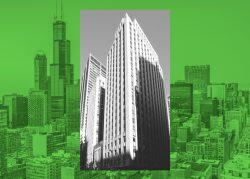The office leasing market is slowly climbing out of the pandemic-driven downturn that made working from home ubiquitous across the nation.
The pace of recovery, however, varies widely in each city, according to a CBRE report on the 12 largest U.S. office markets.
The monthly report used three indexes — space requirements of active tenants in the market, leasing volume, and sublease availability — to gauge the health of each market in June.
The top performers were Los Angeles and Boston, where monthly leasing volume has returned to pre-pandemic levels. Los Angeles was at 140 percent of the 2018-2019 leasing volume average, while Boston was at 100 percent.
Chicago and San Francisco lagged, with the Windy City’s monthly leasing volume at 40 percent of the 2018-2019 average and San Francisco’s at 24 percent. Manhattan was at 57 percent, trailing the 12-city average of 68 percent.
Read more



But one metric in the report suggests Manhattan has strong potential to improve in the near future because more prospective tenants are looking for office space. Manhattan’s tenants in the market index, which compares space requirements of active tenants for the month to the 2018-2019 average, was at 100 percent in June, a significant progress from eight months ago when the index hovered around 40 percent, according to the report.
Prospective tenant demand was also high in Boston at 101 percent, thanks to the large and growing life sciences sector.
Rising subleasing availability has been a cloud hanging over many metro markets, but there, too, are signs of improvement, according to the report.
The average sublease availability index — which compared the sublease inventory volume for the month to the 2018-2019 average — went up most months last year, but the pace of increase has slowed and has stabilized at around 190 percent. Still, many cities struggle with high sublease availability, including San Francisco, where sublet inventory in June was at 329 percent compared to 2018-2019. The sublease availability index figures in Los Angeles, Chicago and Manhattan were 163 percent, 188 percent and 195 percent, respectively.
